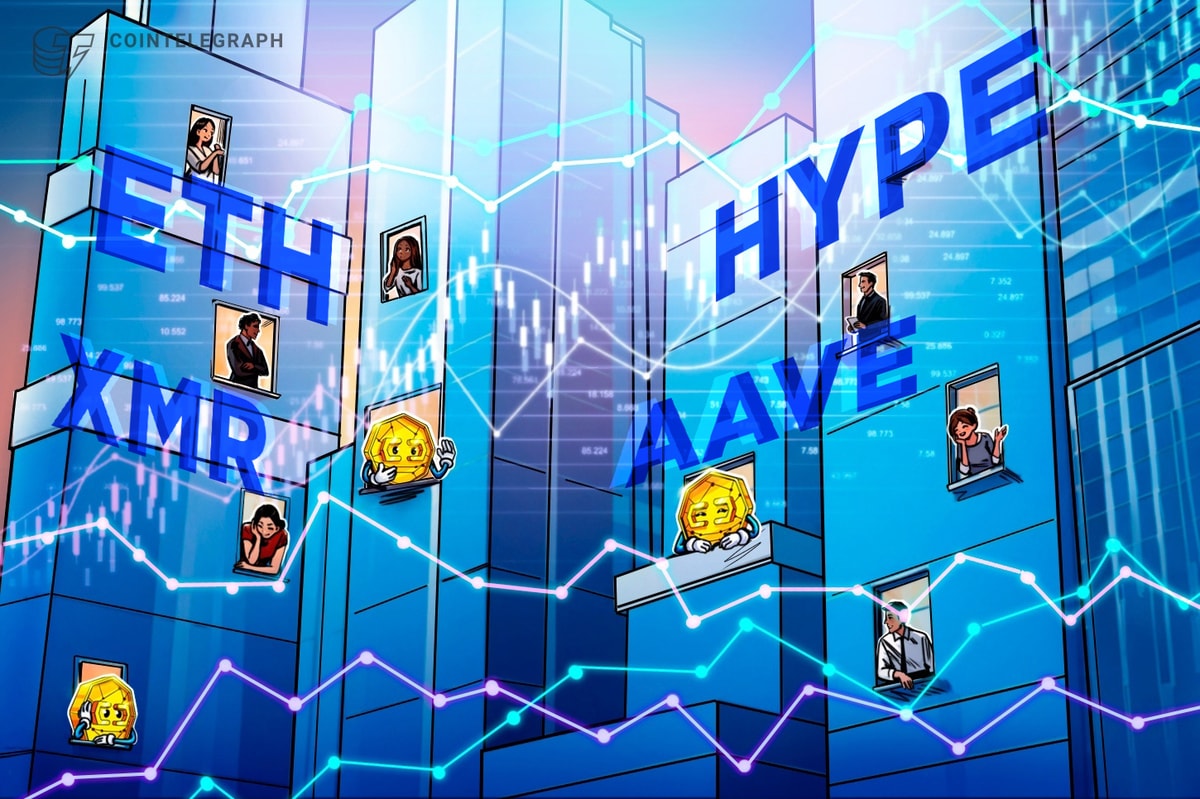Ava Labs CEO Emin Gün Sirer will urge U.S. regulators and policymakers to provide “sensible laws and regulations” to lay the ground for the “responsible growth” of blockchain technologies.
Sirer, who led the development of the Avalanche protocol, is set to deliver testimony before the U.S. House Financial Services Committee hearing on Tuesday along with Circle CEO Jeremy Allaire, Coy Garrison of the law firm Partner, Steptoe & Johnson, and Thomas Sexton III, President and CEO of NFA News.
According to Sirer, his goal is to advocate “for the need for free, safe, and responsible blockchain innovation in the U.S.,” as well as “the technical and scientific merits of these systems.”
One aspect he is going to touch on specifically is the tokenization, or digital representation, of real-world assets.
“Tokenization was not created to evade laws. It is the natural product of blockchain technology and an improvement that blockchains offer over traditional systems, just like computer databases were an improvement over paper filing cabinets,” Sirer wrote in his speech. “Blockchain builders did not set out to develop the technology to evade laws and rules.”
Crucially, said the CEO, the technology solves a key “challenge” in the realm of computer science in achieving consensus among a diverse and widespread set of computers.
“While it may appear obscure at first glance, this is a crucial building block for solving complex problems that traditional internet systems struggle to address, such as creating digitally unique assets, tracking their ownership, and safely executing business and other processes,” reads Sirer’s testimony.
The Turkish-American computer scientist, also known as the co-developer of a Bitcoin scaling solution dubbed Bitcoin-NG, argues that “distributed networks are more resilient, secure, auditable, and available for builders.”
Blockchains are key in a ‘digitally-native world’, says Sirer
Sirer’s testimony comes in the wake of the U.S. Securities Exchange Commission (SEC) last week delivering enforcement actions against crypto exchanges Binance and Coinbase.
In its lawsuit against Binance, the regulator, for example, not only alleges the company was offering unregistered securities, but also clearly points to those assets it considers securities.
These include the likes of Solana (SOL), Polygon (MATIC), and Cardano (ADA), as well as Binance’s BNB token, the exchange’s stablecoin, BUSD, Filecoin (FIL), Cosmos (ATOM), The Sandbox (SAND), Decentraland (MANA), Algorand (ALGO), Axie Infinity (AXS), and COTI (COTI).
Sirer, however, argues that the “ability to leverage distributed or decentralized networks is a desirable goal for many reasons that have nothing to do with securities laws, financial services regulation, or the laws and rules governing other areas of commerce, recreation, and communications.”
He also roped in the rise of artificial intelligence, adding that blockchains will be crucial as the world hurdles towards “a more digitally-native world.”
Stay on top of crypto news, get daily updates in your inbox.

(@el33th4xor) June 12, 2023









 Bitcoin
Bitcoin  Ethereum
Ethereum  Tether
Tether  XRP
XRP  Solana
Solana  USDC
USDC  Dogecoin
Dogecoin  Cardano
Cardano  TRON
TRON  Lido Staked Ether
Lido Staked Ether  Wrapped Bitcoin
Wrapped Bitcoin  Sui
Sui  Chainlink
Chainlink  Wrapped stETH
Wrapped stETH  Avalanche
Avalanche  Stellar
Stellar  Hyperliquid
Hyperliquid  Shiba Inu
Shiba Inu  Hedera
Hedera  LEO Token
LEO Token  Bitcoin Cash
Bitcoin Cash  Toncoin
Toncoin  Litecoin
Litecoin  Polkadot
Polkadot  USDS
USDS  WETH
WETH  Monero
Monero  Bitget Token
Bitget Token  Binance Bridged USDT (BNB Smart Chain)
Binance Bridged USDT (BNB Smart Chain)  Wrapped eETH
Wrapped eETH  Pepe
Pepe  Pi Network
Pi Network  Ethena USDe
Ethena USDe  Coinbase Wrapped BTC
Coinbase Wrapped BTC  WhiteBIT Coin
WhiteBIT Coin  Bittensor
Bittensor  Dai
Dai  Uniswap
Uniswap  Aave
Aave  NEAR Protocol
NEAR Protocol  Aptos
Aptos  OKB
OKB  Jito Staked SOL
Jito Staked SOL  Ondo
Ondo  Cronos
Cronos  BlackRock USD Institutional Digital Liquidity Fund
BlackRock USD Institutional Digital Liquidity Fund  Tokenize Xchange
Tokenize Xchange  Ethereum Classic
Ethereum Classic